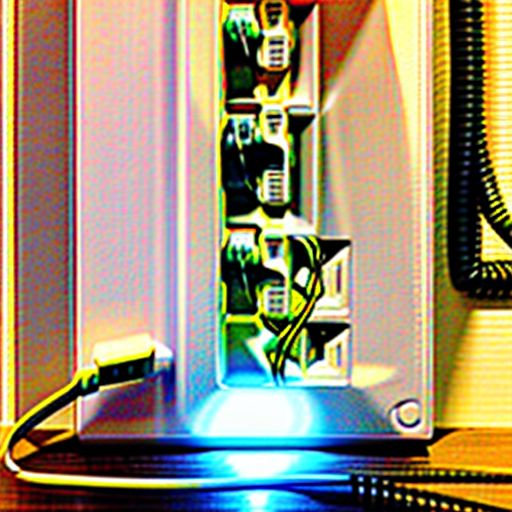
As a business owner, you’re always looking for ways to cut costs and improve your bottom line. One often-overlooked area for potential savings is your business electricity rates. With so many different energy providers and plans available, it can be overwhelming to navigate the options and find the best deal for your business. That’s where this guide comes in. We’ll break down everything you need to know about finding the Best Business Electricity Rates, from understanding your energy needs to comparing providers and negotiating a contract.
 Business Electricity Bill
Business Electricity Bill
Understanding Your Business Electricity Needs
Before you start shopping for electricity rates, it’s essential to understand your business’s unique energy consumption patterns. This information will help you determine the right type of electricity plan and avoid overpaying for energy you don’t need.
Analyzing Your Electricity Usage
Start by gathering your past electricity bills for the last 12 months. Look for the following information:
- Total kilowatt-hours (kWh) used: This number represents your total electricity consumption.
- Peak demand (kW): This is the maximum amount of electricity your business used at a single point in time.
- Load profile: This shows how your electricity usage fluctuates throughout the day, week, and year.
Identifying Your Business Electricity Profile
Once you have a good understanding of your electricity usage, you can start to identify your business electricity profile. This will help you determine the type of electricity plan that will work best for you. Here are some common business electricity profiles:
- Low-demand businesses: These businesses have relatively low energy needs and consistent usage patterns throughout the day. Examples include small offices, retail stores, and restaurants.
- High-demand businesses: These businesses have high energy demands, often with peak usage periods. Examples include manufacturing facilities, data centers, and large commercial buildings.
- Seasonal businesses: These businesses experience significant fluctuations in energy usage depending on the time of year. Examples include hotels, resorts, and agricultural businesses.
Comparing Business Electricity Rates and Plans
Now that you have a better understanding of your business’s electricity needs, it’s time to start comparing rates and plans from different energy providers. Here’s what to look for:
Types of Electricity Plans
- Fixed-rate plans: These plans offer a set price per kilowatt-hour for the duration of your contract. This provides price predictability, which can be beneficial for businesses with consistent energy usage.
- Variable-rate plans: With these plans, your electricity rate fluctuates based on market conditions. While you could save money when energy prices are low, you could also end up paying more when prices rise.
- Indexed-rate plans: These plans tie your electricity rate to a specific index, such as the price of natural gas.
- Time-of-use (TOU) plans: TOU plans charge different rates for electricity based on the time of day you use it. Typically, electricity is cheaper during off-peak hours and more expensive during peak hours.
electricity.dulichthuysyaz.com/wp-content/uploads/2024/07/comparing-electricity-plans-6691e4.jpg" alt="Comparing Electricity Plans" width="512" height="512">Comparing Electricity Plans
Factors to Consider When Comparing Plans
- Electricity rate: This is the most crucial factor to consider. Compare the rates offered by different providers, paying attention to the contract length and any early termination fees.
- Contract terms: Read the fine print carefully and pay attention to the contract length, renewal terms, and any fees associated with early termination.
- Renewable energy options: Many energy providers offer plans that include a percentage of renewable energy sources like solar or wind power.
- Additional fees: Be aware of any additional fees, such as connection fees, disconnection fees, or late payment fees.
- Customer service: Choose an energy provider with a good reputation for customer service and support.
Negotiating Your Business Electricity Contract
Once you’ve found a few energy providers and plans that meet your needs, don’t be afraid to negotiate for a better deal. Here are some tips for negotiating your business electricity contract:
- Leverage your knowledge: Use the information you’ve gathered about your energy usage, electricity rates, and different plan options to your advantage.
- Be prepared to walk away: If you’re not happy with the initial offer, be prepared to walk away and consider other options.
- Get everything in writing: Once you’ve reached an agreement, ensure that all the terms and conditions are clearly outlined in writing.
Conclusion
Finding the best business electricity rates takes time and effort, but the potential savings make it well worth the investment. By understanding your business’s energy needs, comparing plans carefully, and negotiating a favorable contract, you can secure competitive rates and reduce your overall operating costs.
Do you have any questions about finding the best business electricity rates? Share your thoughts and experiences in the comments below! And don’t forget to explore our website for more insightful articles on saving money and optimizing your business operations.


